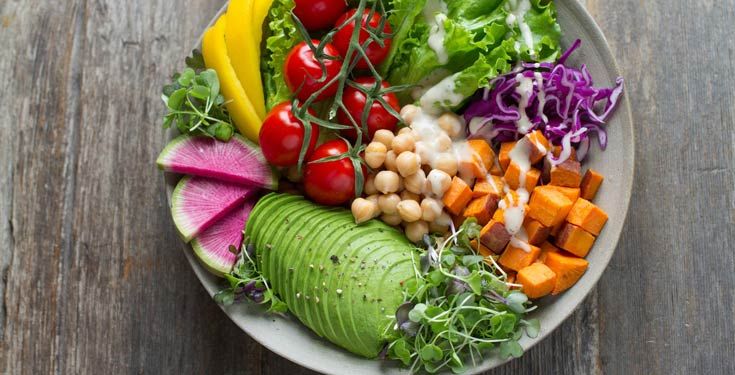In recent years, plant-based diets have gained immense popularity, with more and more people choosing to adopt this lifestyle for health, environmental, and ethical reasons. However, when it comes to women, there are specific considerations to keep in mind when following a plant-based diet.
Pros of Plant-Based Diets for Women
There are several benefits of following a plant-based diet for women:
Improved Heart Health
Studies have shown that plant-based diets can lower the risk of heart disease, which is the leading cause of death for women. By reducing consumption of saturated fats and cholesterol found in animal products, women can improve their heart health and lower their risk of developing cardiovascular diseases.
Weight Management
Plant-based diets are rich in fiber, which can help women feel fuller for longer and aid in weight management. This can be especially beneficial for women looking to maintain a healthy weight or lose excess pounds.
Reduced Risk of Certain Cancers
Research has suggested that consuming a plant-based diet may lower the risk of certain types of cancer, including breast cancer. By incorporating a variety of fruits, vegetables, whole grains, and legumes into their diet, women can potentially reduce their risk of developing cancer.
Cons of Plant-Based Diets for Women
While plant-based diets offer numerous benefits, there are also some potential drawbacks for women to consider:
Nutrient Deficiencies
One of the main concerns with plant-based diets is the risk of nutrient deficiencies, particularly in key nutrients such as iron, vitamin B12, calcium, and omega-3 fatty acids. Women, in particular, may be at higher risk of iron deficiency due to menstrual blood loss. It’s important for women following a plant-based diet to be mindful of their nutrient intake and consider supplementation if necessary.
Hormonal Imbalance
Some women may experience hormonal imbalances when following a plant-based diet, particularly if they are not consuming enough healthy fats or protein. Hormones play a crucial role in women’s health, and it’s essential to ensure that the body is receiving the necessary nutrients to support hormonal balance.
Social Challenges
Another potential downside of plant-based diets for women is the social challenges that may arise when dining out or attending social gatherings. It can be challenging to find plant-based options at restaurants or gatherings, which may lead to feelings of isolation or exclusion. It’s important for women to be prepared and advocate for their dietary preferences in social settings.
Conclusion
Plant-based diets can offer numerous benefits for women, including improved heart health, weight management, and reduced risk of certain cancers. However, it’s essential for women to be mindful of potential nutrient deficiencies, hormonal imbalances, and social challenges that may arise when following a plant-based diet. By carefully planning their meals, listening to their bodies, and seeking support from healthcare professionals, women can successfully navigate the pros and cons of a plant-based diet and enjoy a healthy and balanced lifestyle.

